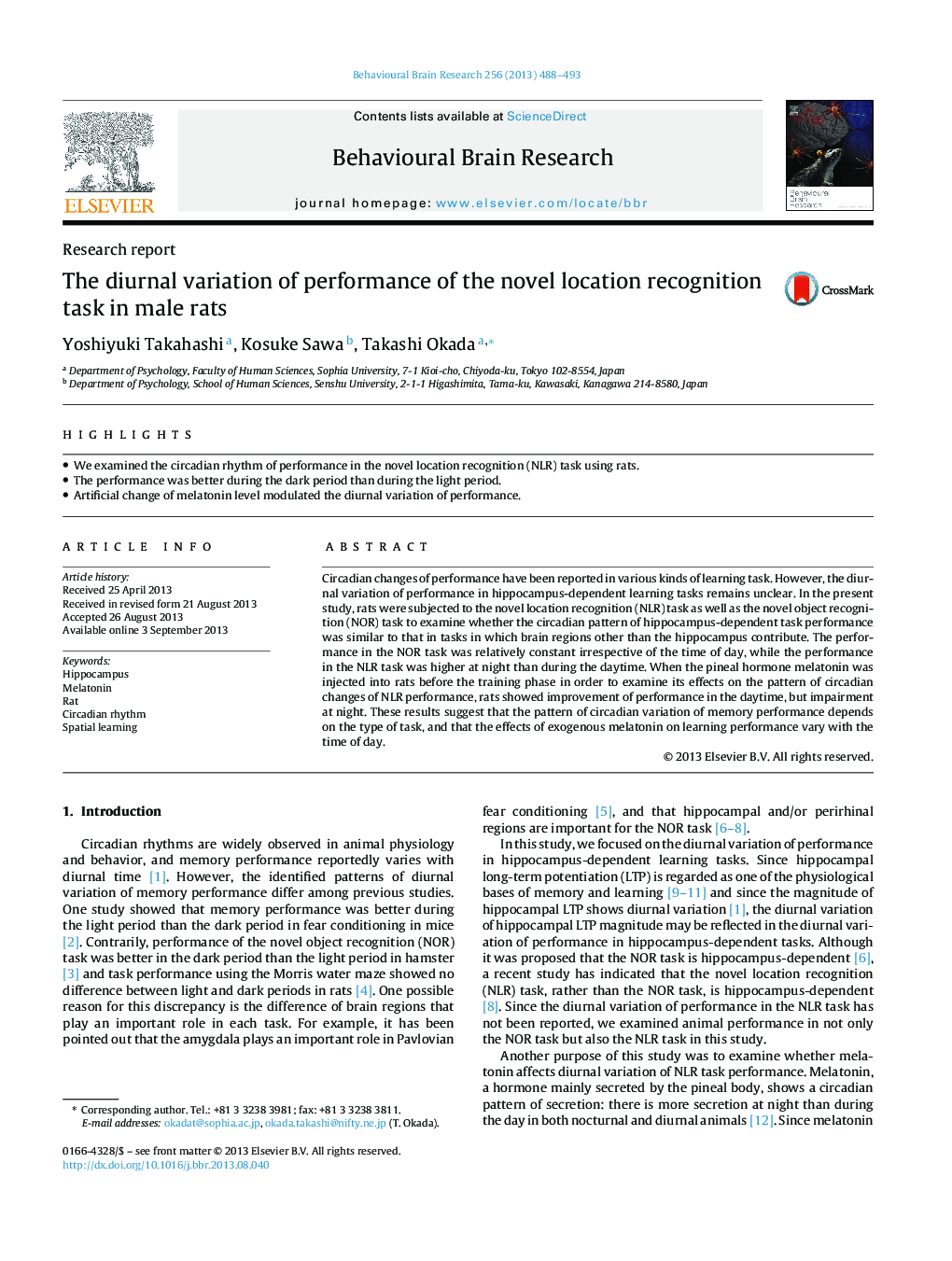| Article ID | Journal | Published Year | Pages | File Type |
|---|---|---|---|---|
| 6258856 | Behavioural Brain Research | 2013 | 6 Pages |
â¢We examined the circadian rhythm of performance in the novel location recognition (NLR) task using rats.â¢The performance was better during the dark period than during the light period.â¢Artificial change of melatonin level modulated the diurnal variation of performance.
Circadian changes of performance have been reported in various kinds of learning task. However, the diurnal variation of performance in hippocampus-dependent learning tasks remains unclear. In the present study, rats were subjected to the novel location recognition (NLR) task as well as the novel object recognition (NOR) task to examine whether the circadian pattern of hippocampus-dependent task performance was similar to that in tasks in which brain regions other than the hippocampus contribute. The performance in the NOR task was relatively constant irrespective of the time of day, while the performance in the NLR task was higher at night than during the daytime. When the pineal hormone melatonin was injected into rats before the training phase in order to examine its effects on the pattern of circadian changes of NLR performance, rats showed improvement of performance in the daytime, but impairment at night. These results suggest that the pattern of circadian variation of memory performance depends on the type of task, and that the effects of exogenous melatonin on learning performance vary with the time of day.
